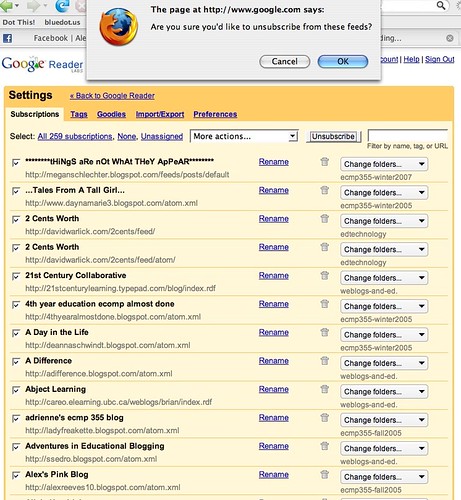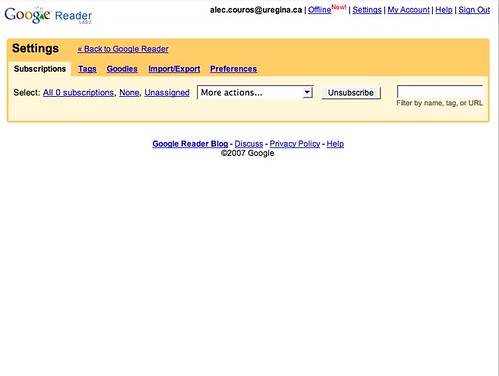One of the things I mention when I present at conferences or to university students is that one of the first things I do in the morning is read my RSS feeds. At times, I’ve had over 1000 feeds in my Google Reader although I’ve whittled this number down significantly. I don’t know, lately, I’ve just found things just are too repetitive, boring, mundane, written for the sake of writing, etc. In other words, I’ve become a bit disinterested in many of the feeds I am reading.
People often ask, “How do you keep up with so many blogs, etc.”. I’ve said in response that I’ve made it a big part of what I do, that I check my RSS before my email, or before diving into those (often) boring academic articles. However, I think something inside my needs a big change. So, today I’ve made the decision to dump all my feeds, and start over.


It’s a bit drastic, but I’m going to start filling up my reader with all of the sources that I can think of from the top of my head, friends and colleagues who I enjoy reading, and who inspire me. From there, as before, I’ll add others that interest me. However, this time, I’ll be much more particular as I really want to be able to interact with those I read. I’m making a commitment. If I read you, I want to also be able to give back.
So my list may be embarrassingly small for the time being. However, change is good, and sometimes drastic change is the best.
For those edubloggers out there, inspiring us all do a better job as educators and as leaders … I’ll find you again.
Powered by ScribeFire.


